 Your new post is loading...
 Your new post is loading...
People are instinctively drawn to brands that are considered more authentic than their competitors. How can your brand win?Authentic stories help you build emotional connections with customers. But how can you relate your stories back to the target audience?Below are four tactics that can help add a layer of authenticity to your content marketing....
No matter how on message anyone is, there still may be a difference between what a company or brand says about itself and its reputation, and what consumers say about them. FleishmanHillard calls this the “authenticity gap.”
Every year, the company uses research and data to see which companies are on the right track, and whether they are focused on the things that matter most to the audiences that are most important to them. Last month, a group gathered in Toronto to discuss the authenticity gap and how it applies to them. Below is a broad overview from Nick Drew, FleishmanHillard’s Canadian head of research, of the data turned up in 2015....
So when new research is published that explains how business can actually improve profits by thinking about the world at large, it's exciting to read and it needs to be shared.
The 2015 Cone Communications/Ebiquity Global CSR Study reveals that consumers care more about the world than ever before, and they spend their money with companies that share that belief. Here are just a few important takeaways:
Consumers Know More, Research More, and Make More Informed
Decisions That Put the World FirstCone calls today's consumers "empowered." Meaning that they read more reviews, talk to their social networks, and do more research about products, and the companies behind them. And if they don't like what they see, the go elsewhere....
What’s in it for them?” is, perhaps, the most important question that you can ask yourself before you enter into cause-related business (or any business, for that matter). So often, marketers know a ridiculous amount about their product, their points of differentiation, their mission or even their cause, yet when asked about their customer, they run out of things to say rather quickly.
The secret to fostering engagement with your customers lies in knowing what they are really buying from you. If you want your business to do good, it better be the kind of good that people care about. People save the cute and cuddly animals first. Baby fur seals and koalas are far easier to rescue than the blowfish. This is not to diminish the importance of any cause, but if we fail to be honest about the way that consumers buy and buy in, then we fail to understand the nature of “good” in business....
What do you do when your business has a poor reputation online or received a poor review?A lot of businesses and individuals often wonder how they can better their online reputation.
First, let me tell you how NOT to address negativity online. Don’t create fake reviews. Fake reviews, especially the kind that are paid for, are easily identified by your potential consumers and that will break their trust in you. In addition to being caught by potential consumers, you will likely be caught by site owners and/or Google. For sites like Yelp, they have publicly shamed businesses that they have caught....
Within the last couple of years, you are now starting to see actual companies sharing their revenue numbers and many other things (likeemployee’s salaries). Often times, these sorts of posts are the most read. It attracts readers of all kinds, not necessari,ly just potential customers.
Some of the companies doing this are venture backed, and some are bootstrapped. It’s what makes them fun to read. You see a diversity of tactics and strategies being implemented based on what stage they are in.Here is a list of companies providing regular revenue reports that are worth the read, along with a quote from their founders about why they do it....
Pinpoint Market Research reports that “twenty-somethings” want something more from brands than just a product or service; they want social, political and community action. The market research company surveyed 1,650 men and women aged twenty to twenty-nine in the U.S. about social issues and brand engagement.
What They Want From Brands And The Social Issues That Matter To Them: - Seventy-nine percent choose or boycott companies based on the brand’s allegiance to social issues - Eighty-eight percent want to see brands “effecting real change” in the communit - The issues they most care about: online privacy (31%); America’s debt/deficit (22%); climate change (20%); GLBT rights (15%); net neutrality (7%); police brutality/excessive force (5%)...
Now that the buzz and media frenzy about the demise of RadioShack and the analysis of why by Wall Street and other experts is beginning to subside, another consideration should be examined. What happens to brands that do not remain relevant, stop innovating and sit on their hind quarters? Well in short, they RadioShack….
Search engine optimization experts share tips and tools to help you manage your company's online reputation.
A handful of companies offer free and paid online reputation management services for consumers and businesses, including Reputation.com and Brand Yourself. In addition to using these services, or in lieu of them, both small and midsize businesses and enterprise digital marketers can take strategic steps to ensure their companies' online reputations are solid.
The following 15 tips and eight tools are all valuable and effective ways to help manage your organization's corporate reputation online....
Ever Googled yourself? What did you see? Did you like your web “you”?
That’s the only way some people see you today in a digital world.
You are defined by your online content, brand and persona. Sometimes a personal branding focus can be seen as an overt attempt of self promotion.
In crowded job market and a competitive business world some packaging and promotion is essential.
Australians are increasingly favouring ethical brands, with more than three quarters of respondents to a Havas PR study showing some conscientious consumption. In the past, almost three fifths of respondents reported failing to act conscientiously.
As executive influence becomes more important, C-suite executives really do need to “be their brand.” To that end, being seen as an influential thought leader or opinion maker is vital for any CXO hoping to lead a competitive company in today’s world.
But how do you do that? We decided to look at people who are doing it successfully today, and reverse-engineer their secrets. We identified 7 important habits, the first 4 of which we’ll cover in today’s article. They are: - Own A Topic
- Make The Most of Controversy
- Corollary – Don’t Work in Finance
- Tweet Early, Tweet Often aka Publish or Perish
- Know Your Audience
- Be More Than A Brand Extension
- Make Yourself Accessible
So let’s see exactly who these influential leaders are....
Social media thought leadership requires both direct and indirect tactics. Using your own social media channels is your direct reach. It is limited by the quality and size of your audiences on each of the social networks you use and how attentive your audiences are to your posts. You can improve attentiveness by being interesting, engaging and useful, but there are limits to what you can do with direct outreach here.
It is via indirect channels that you truly become a thought leader. When people share your posts with their networks, when they seek you out for answers to their questions and when they start talking about your ideas without even mentioning you, that is what thought leadership has become.
When the press retweet you; when experts and policymakers follow you and incorporate your ideas into their work; when these things happen to you, you are a thought leader....
|
Every business must serve a social purpose”. These are not the words of a social campaigner or a politician; they are the words of a banker, Ashok Vaswani, the CEO of Retail and Business Banking at Barclays, one of the world’s largest banks. Barclays has been involved in at least one major trading scandal and holds the dubious honour of the most fined bank in Britain. There will be some people who will treat his words with understandable cynicism but that would be to miss the point.
The point is not whether the words are sincere or not – it is that they should have been said at all. Banks are concerned with the control of money, why should they concern themselves with any purpose beyond that? The reason is that society is demanding they do. When banks first started they fulfilled a social need in the community, to enable ordinary people to fund their ambitions. Over the years banks forgot that purpose and focused most of their efforts on funding their own ambitions through obscene profits, often at the consumer’s expense. The bubble burst in spectacular fashion with the downfall of Lehman Brothers in the US and RBS in the UK.
It isn’t just the banks that have lost their way. Now it’s critical for any business to demonstrate it has a purpose before, and beyond profit; that it seeks to improve the lives of its customers as a primary goal. Failure to have such a purpose, to be clear about it and to ensure it directs everything you do, will lose customers, employees and ultimately business value....
“Many companies are showing greater willingness to take public stances on controversial issues,” said West. “While the vast majority of consumers in our study said they are likely to purchase from companies they agree with, only 3 in 10 have actually done so.
This makes me think consumer behavior hasn’t quite caught up to this new environment in which companies take stands on controversial topics.”
But the risk is evident—and ultimately begs the question: From a company perspective, is it worth it?
“The overwhelming majority of consumers in our study agreed they are more likely to buy from companies they see eye to eye with, and almost half of consumers said they had already stopped buying from a company over a difference of opinion. This tells me that consumers are willing to vote with their dollars,” said West. “But there may be more danger for many companies than opportunity—especially if you serve, as most companies do, a market with diverse political views.”...
Everyone knows price matters to consumers, but a new study suggests the lowest price doesn’t always win. Even more important to consumers is the reputation of retailers—and how prices correlate to that brand reputation.
Price Still Matters
This guideline comes from Concordia University’s John Molson School of Business, which does agree that price remains an important factor for businesses. But price is a relative figure that relates to the reputation of a business, and consumers typically gauge whether a price is good based on how it compares to a brand’s reputation.
In other words, a high price isn’t a deterrent to many consumers, as long as it corresponds to a positive reputation. When price and reputation seem misaligned, consumers are turned off....
We all know that social media plays a huge part in building and boosting your personal brand in the digital world, but do you feel lost sometimes with all the different social media channels and are not sure where to start?
There are tools that can help!Here are 9 cost-efficient social media tools that we recommend to help make your personal branding efforts easier.....
The 'Reputation Complex' is a moving combination of various reputational factors, components and drivers that are linked in a close and complicated way. This combination brings with it, for all organizations, equal risks and opportunities – the first to be managed and the second to be exploited in the right manner.
MSLGROUP's SVP and Chief Strategy Officer, Pascal Beculer shares his thoughts on the fast transformation of Reputation Management, everywhere in the world, and what it means for our clients and for us....
People often ask me, “Will customer reviews help or hurt my business?” Several months ago, I advised readers not to panic over customer reviews and to claim their accounts on Google Local, Yelp, and other sites that list businesses and accept reviews. Since then, I’ve come across a mix of opinions regarding customer reviews, and I still think that good, honest businesses benefit from reviews, even if they aren’t always full of praise.
Recent research shows that consumers who post reviews not only refrain from being overly negative, but want reviews to be balanced and informative. This is really good news for honest business owners like you....
Last summer, PR giant Edelman became the focus of negative media attention when it became known that the agency was open to representing so-called "climate deniers." A perception of environmental callousness was furthered when an internal email from Edelman somehow reached the Climate Investigations Center, in which the firm's then-CEO and U.S. president Mark Hass said it was not necessary that he comment on the agency's stance on which clients it will or won't take.
Suddenly, a full-scale attack was launched against Edelman by many media outlets, painting the firm as a greedy organization that prioritized profits over principle. The episode sparked a months-long PR crisis for Edelman (no, the irony was not lost) and involved firm chairman Richard Edelman issuing a statement confirming the agency's commitment to climate-change science, and dismissing Hass. Like most crises, this one passed over—but it was not easily forgotten by the agency....
Though consumers will show no remorse when it comes to holding companies responsible for unethical or distasteful behavior, they will also proudly advocate and defend the brands that are doing their jobs well. For the past fourteen years, theEdelman Trust Barometer has benchmarked consumer confidence in businesses, media and the government through an annual, global survey of more than 30,000. Respondents are asked to rank brands on how much they trust each institution to do what is right.
Recently, Edelman launched an additionalbrandshare™ survey that seeks to understand the evolving relationship between buyers and brands.
Examining the natural intersection of both studies reveals an important opportunity for businesses to build trust by improving engagement and integrity. But what is trust? Wincko defines trust by the equation “Trust = Reliability + Delight/Self-Interest” as a reminder of the principle’s core components, which are strongly aligned to the findings of the 2014 Edelman Trust Barometer...
No, we're not talking about Apple or Amazon or Big Data or the Marketing Cloud or Programmatic Buying.
Chevy’s Rikk Wilde “looked down at his notes often, spoke haltingly and explained to the pitcher that he'd like the Colorado” —Marketing Daily’s Karl Greenberg has the skinny today on its new “inner truck guy” conventional campaign — “because it has ‘class-winning and leading, you know, technology and stuff,’” James R. Healey reports in USA Today.
“The nervous Wilde was assured this morning he still has a job,” Greg Gardner and Alisa Priddle reported in the Detroit Free Press last evening. “And in fact he appears to have garnered millions in free publicity for the Chevrolet brand, which has received at least $2.4 million in media exposure from the unconventional presentation, according to Front Row Analytics. Bloomberg reports that is six times more than the $392,000 it would have brought in with a more polished performance.
”It did not take long for #technologyandstuff to pop up on Twitter with GM president North America Mark Reuss (@GMdudeinNA posting, “It's what I've been saying for years.....#technologyandstuff,” Gardner and Priddle report....
... We found that the better a company's reputation was, the more likely that company was to be successful.
For example, of the respondents who said they had a "better-than-average" reputation, 52% had a success score between six and nine and 25% had a success score above nine (the highest score of any respondent was 14). Only 2% of companies with a better-than-average reputation had a success score below three.
If you've been trying to gain the resources and approval to improve your company's reputation, you can use this chart as part of your justification for increasing your budget and bettering your customer service.
Not sure what you can do to improve your ecommerce site's reputation? Here are five ideas to get you started....
The proportion of corporate directors who say their companies are monitoring social media for “adverse publicity” (a gentle euphemism) has increased from 32% in 2012 to 41% today, according to the latest Corporate Directors Survey from PricewaterhouseCoopers.
However, as these figures indicate more than half of corporate directors still believe their companies aren’t doing a good enough job of keeping an eye out for adverse publicity: 55% of the PwC survey respondents said their companies either aren’t monitoring social media efficiently, or aren’t doing it at all. That’s down moderately from 61% in 2012.
PwC found a similar story in regards to social media strategies for applications like marketing, research, and internal communications. Thus 40% of respondents said their companies are leveraging social media for strategic goals, while 54% said their companies’ efforts to leverage social media are insufficient or nonexistent; both figures are unchanged from two years ago....
Edelman is usually tapped with helping brands avoid or disentangle themselves from public backlash, but the global PR firm instead found itself in the hot seat this week. At issue was a blog post from media relations strategy evp Lisa Kovitz, who said the suicide of comedian Robin Williams created a PR opportunity for groups advocating for better treatment of mental illness. "As we mourn the loss of Robin Williams to depression, we must recognize it as an opportunity to engage in a national conversation," she wrote. "His death yesterday created a carpe diem moment for mental health professionals and those people who have suffered with depression and want to make a point about the condition and the system that treats it." While she certainly has a point about such a high-profile tragedy bringing mental health and depression into the spotlight, quite a few readers found the post to be in poor taste....
|
 Your new post is loading...
Your new post is loading...
 Your new post is loading...
Your new post is loading...















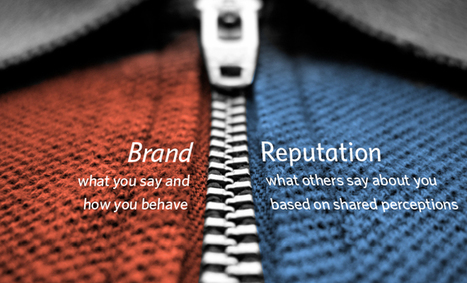


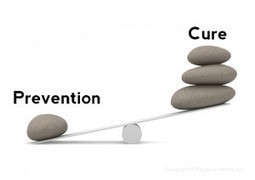

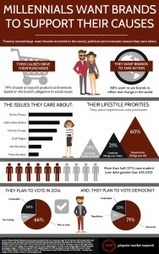
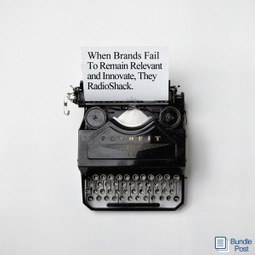






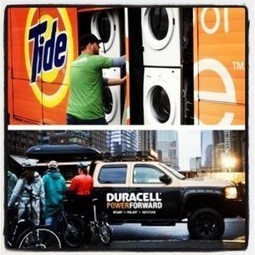


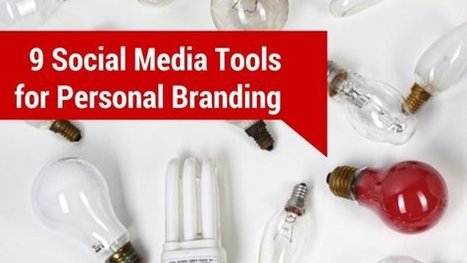





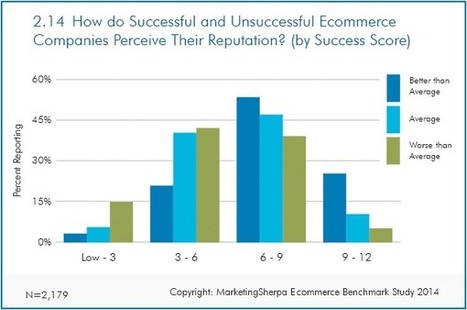








Nothing like authenticity to distinguish yourself from your competitors.